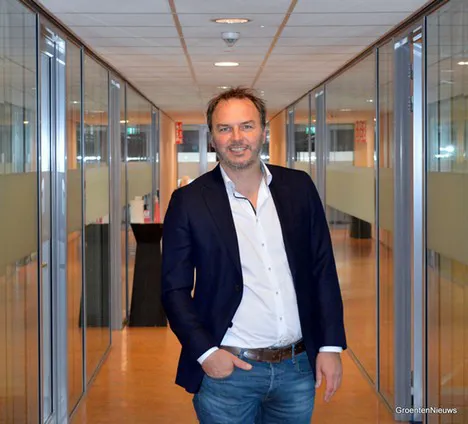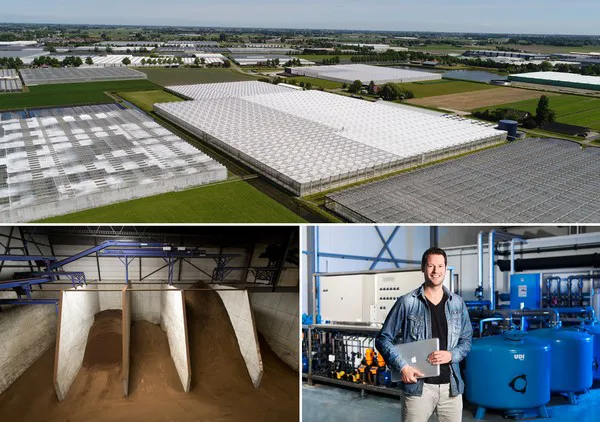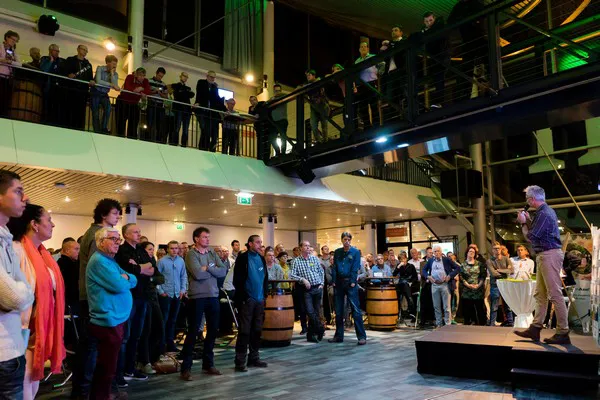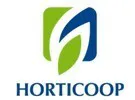The Dutch horticultural cooperation Horticoop expects to formalize the transition, which began this year, by the end of the year. In close consultation with the growers, the members have strengthened their ties after the transactional relation was taken due to the rejection of wholesale activities by the end of 2018. The new member loyalty can be characterized as similar to investors instead of clients.
Officially, this implies a transition from a governance model to an RVC+-model, but even more important is that growers will experience more membership benefits and that the cooperation will be able to make more decisions based on their returns, from which the growers will profit through a dividend, chairman Joris Elstgeest summarizes. Through updates, he regularly shows members and outsiders the transition process and explains the developments in depth.

Joris Elstgeest at the Horticoop office in Bleiswijk
Organization structure
Horticoop was already aware that transactional relations with members would decrease by the end of 2018 due to wholesale sales. In anticipation, plans had already been made, though none of them definite. Now they are. 2020 is the year in which it will happen and in which the transition phases will be executed. The cooperation is working on new statutes, an arrangement for the registration of assets gets expanded upon, and the portfolio will be renewed for subsidiaries and partners.
The structure of Horticoop cooperation is changing. Management, the supervisory board, and the managerial board are represented in a transition committee in which the transitions are explained. The cooperation will have a managing director (statutory director) in the new structure, and the current board will be disbanded. The board members, together with the external Horticoop Ltd. Commissioners, will become the cooperative supervisory board.
Participation in innovating
From traditional cooperation, based on ‘purchasing power’, Horticoop develops into a partner and innovator in knowledge and efficiency. “We will take on the role of investment and development fund and as the parent company of an extensive portfolio of horticultural related companies, more and more. We want to invest more in innovation both in service and together with members of the sector. Think about things like participation in innovative start-ups, for example.”
 Horticoop already participates in many things, among which, picked at random, Mardenkro (coatings, top), Lensli (substrates, bottom left) Horticoop Technical Services (horticulture techniques, bottom right).
Horticoop already participates in many things, among which, picked at random, Mardenkro (coatings, top), Lensli (substrates, bottom left) Horticoop Technical Services (horticulture techniques, bottom right).
Focusing on returns with dividend as a result
Joris is not afraid this will lead to a discussion between, for instance, ornamental and vegetable growers on what Horticoop needs to invest in. “Because we will focus on returns, ornamental growers profit from good results as well by participating in innovative techniques for greenhouse cultivation and greenhouse growers who would, in turn, also profit from ornamental cultivation projects.”
The member's council gets actively involved in these decisions and decides the contours of the investments. Members will profit because it either provides returns for the cooperation, which leads to dividends or strengthens the sector. “We are working hard for it at the moment, and the members are informed about this, but we hope to be able to pay out the first dividend to our members in 2022.”
Like most cooperation, the members' revenue is a deciding factor in the distribution of interests within the cooperation. “We are looking into how we can facilitate the change of ownership of those interests between members.”
Operating faster and more commercial
It is clear to the members that they will be able to profit from new participation, services, and products from the cooperation. In this new form, Horticoop becomes interesting for other companies because the members, over four hundred in total, form a potentially interesting group: buyers, knowledge partners, or others, according to Joris.
"After consulting the members, we were notified that the bond between members of the cooperation could be strengthened and that Horticoop should present itself more commercially. Which is what we are working on now. Focusing on returns while keeping in mind the members and the interests of the sector, that is our operating principle.”

Archive photo of the Insperience Days at Horticoop from 2017. The last edition took place in 2018
Membership bonding
Last month, the member's council gave the go-ahead for the transition plans. The next step is their formalization in the statutes. Horticoop hopes to realize that his year after which Horticoop 2.0 should be ‘up and running’, Joris expects. “It won’t be immediately noticeable to outsiders. However, even now, what is noticeable is that we communicate more with our members and participants. This helps the cooperation gain more recognition.”
Even the Insperience Day from the past will be making a comeback. “All great things that show the transition being in full swing at Horticoop and among the members. Everyone is looking forward to what’s to come. Maybe this will also lead to growers thinking: ‘That is a club I would like to be part of.’ This is not the main goal of the transition, but it would be a compliment to the way the cooperation plans to move forward.”
Finally, Joris would like to emphasize the knowledge and experience of Dutch growers. “We believe in the power of horticulture and have a unique position of knowledge in the Netherlands, which is becoming more and more important for global developments. More parties from all over the world are already noticing this. We want to unite members, the sector, the suppliers, the scientists, the training institutes, and other stakeholders to strengthen our pride and innovations. Horitcoop wants to play a leading and connecting role in all of this. Though a lot is changing, the main goal remains: we remain committed to creating a healthy future from the horticultural sector.”
For more information:
Horticoop
www.horticoop.nl
[email protected]
